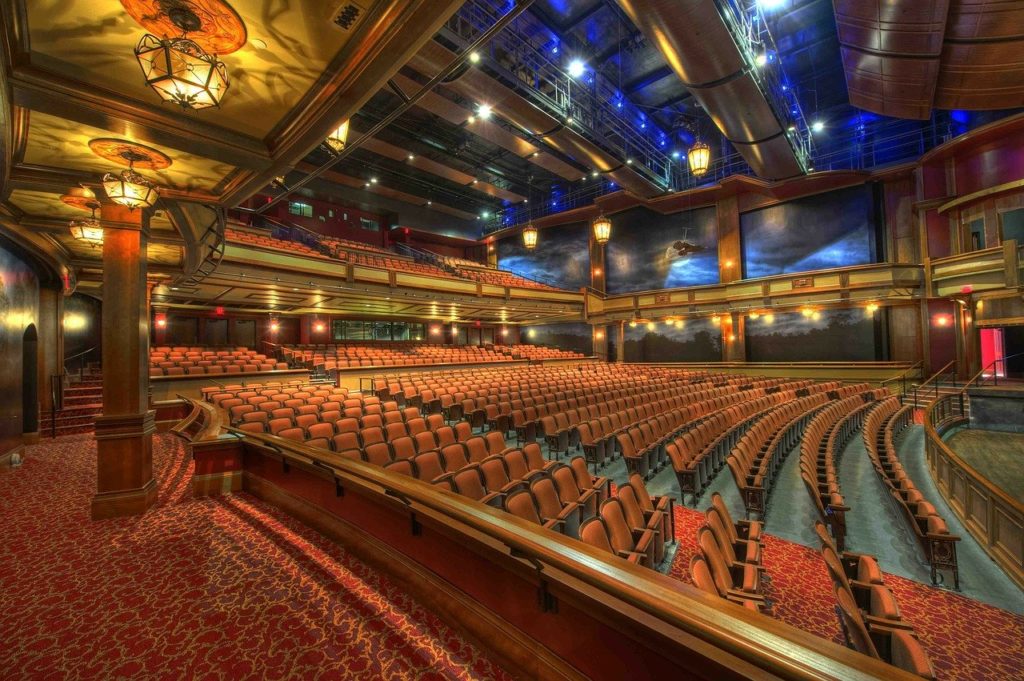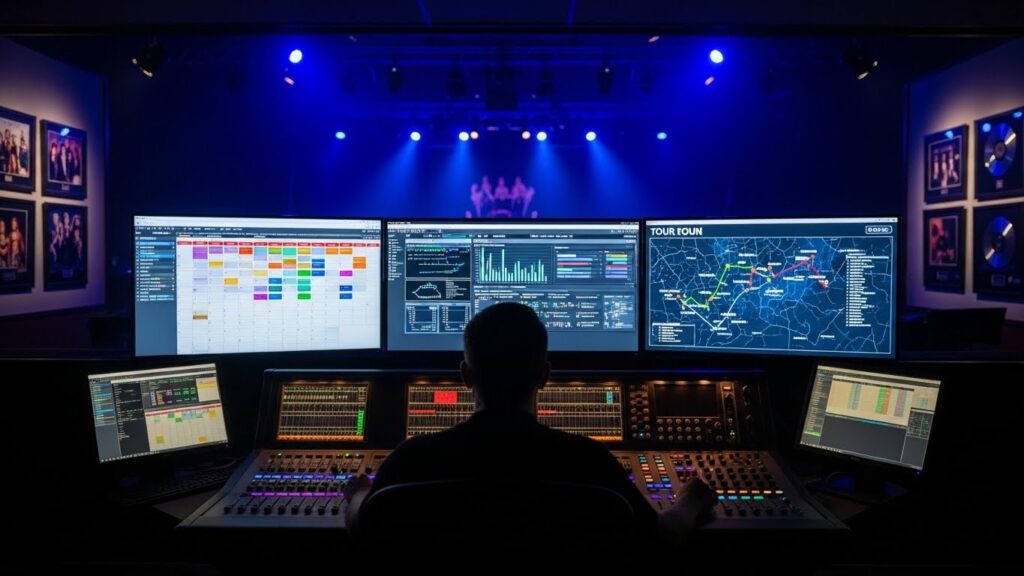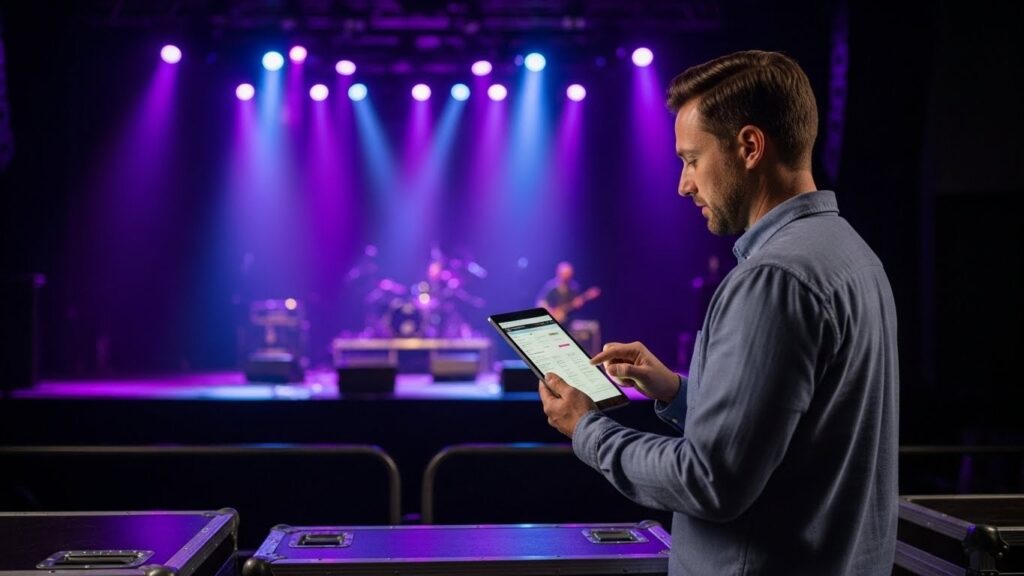
How to Find the Best Venue Management Software
What Is Venue Management Software? (define and purpose)
A venue management software automates and streamlines the activities related to managing a venue, while also providing transparency into and organization of the many moving parts of operating a venue. Venues may be a dedicated music or concert hall, auditorium, hotels, conference centers, theaters, arenas, outdoor amphitheaters and spaces, or virtually anywhere a crowd can gather.
The key to effective and profitable venue management is organization. Beyond maintaining a proper venue, venue owners and managers must also deal with dozens, if not hundreds, of people it takes to pull off an event. Take, for instance, live music. A typical music hall must consistently book talent for months in advance. They have to work with artists and bands, agents, promoters, marketers, ticketing platform companies, catering and beverage suppliers, security, equipment technicians, and staff.
Each stakeholder likely has contracts and requirements, and varying availability and fees/costs. The amount of communication and collaboration to pull off even one show is astounding, let alone multiple shows weekly. Being organized is the only way to control all of the thousands of tasks, people, documentation, and communications. And that takes more than manual spreadsheets, emails, and phone calls.
Related: Mistakes You Might be Making Without Event Management Software
For a venue to truly be profitable, venue owners and managers need to invest in a venue management system that brings everything and everyone together in a single, centralized place where they have all the tools and functionality they need to get it all done with less effort.
Do You Need a Venue Management System?
Whether you have a single venue or multiple, large or small, venue management software is the way to go. One you see all you can do with it and how much time and effort it saves you, it’s hard to justify the obsolete manual methods you may still be using.
Keep in mind, venue management software can be used by more than you and your management team. Your sales, marketing, and other teams will find it highly advantageous as well. For instance, your sales team can manage all of the venues in one place, communicating with customers in a place that makes it simple to track conversations with show, talent, room, or calendar date filters. Instead of digging through countless emails that get buried amongst non-related emails, all communications related to a venue or show are in one place.
Marketing teams, too, can benefit from a unified venue management system. They can leverage the software to track budgets and ROI, manage calendars, work with promoters, and collaborate with other teams all on a single platform. They have complete visibility into how their marketing investments have paid off in the past per show to get a better understanding of what works for who and what doesn’t, potentially saving them money on efforts that aren’t seeing much of a return. This ensures they are focused on the right things, customized for each venue or artist.
An effective practice to determine whether it’s time for a venue management system in your environment is to ask yourself the following questions:
- What systems am I using now to manage all of the moving parts of my business?
- How many different and disconnected systems am I going back and forth between on a regular basis?
- Do I have real-time and historical insight into the financial health of my business?
- Using the systems I have now, can I model scenarios ahead of time to determine how best to manage my venue to be as profitable as I want it to be?
- Do I have a centralized place to easily communicate and collaborate with my teams?
- Is my current way of booking shows led to any mistakes, such as double-booking, settlement issues, or payment errors?
If you are still using manual efforts to run your business, you most likely answered “yes” to the last question. And that’s a problem. Because even the small mistakes can lead to big hits to your bottom line and big problems with your reputation. With so much competition between venues and margins so small, you need to do everything you can to become more efficient, streamlined, and effective in how you manage your venue.
Features to Look for in a Venue Management Solution
When you assess different venue management systems, you will find there are a lot of common features, as well as some differentiating ones. As with any potential new investment, try to look beyond the list of shiny features. Determine what features you and your teams would actually use. Too many people buy a robust technology solution and then realize they paid for features they’ll never need.
Features you will need in a venue management software solution are:
- A comprehensive calendar management system
- Automated offer generation via customizable templates
- Revenue and expense tracking that is linked to your ticketing platform
- Settlement and instant reporting
- Centralized collaboration platform for your stakeholders, with control access to sensitive information
- Real-time data visualization to track key metrics, generate reports, make projections, and identify trends
These are just a few of the features that can help you run your business more smoothly with less effort. Be sure to take advantage of any free demos or trials to see how the software actually works and all of the features. This will help you visualize the solution in your workflow and which features are worth the investment.
Compare the functionality you would gain from using the software with how you are working without it. How much time would you get back in your day? How much more efficient could you and your teams work? What would happen to the rate of errors and mistakes? How much better could you communicate with stakeholders? Asking yourself questions like these will help you justify your investment while also giving you success metrics you can use to track the ROI of the product later.
Related: Automate Venue Management. Get Your Life Back
Free vs. Paid Venue Management Systems
When you begin looking at venue management systems, you may notice that some companies offer free versions. While this may be appealing at first, you need to read between the lines to find out if “free” is really free and if the product provides all of the features and functionality you really need to be effective.
One feature almost always missing from these free versions is the financial component. Sure, they’ll streamline your business, but they rarely give you the ability to tie all of your efforts to your budget, visualize your financial data to model scenarios and make wise financial decisions, keep track of ROI in real-time, or track sales trends and clients’ profitability. Few integrate with your ticketing platform so you can see real-time updates to your financials as tickets are sold, nor do they track actual expenses as they occur instead of after settlement. You can’t see your show status with breakeven, marketing ROI, or net sales, either, yet all of these capabilities are essential to running a profitable business.
Then there are the “free” versions that are only free for a limited time. You may get 7-60 days of a free version and then you start paying, often more than you expected. Having these short trials is also challenging because it doesn’t give you enough time to set up and scale the solution to your teams to see how they fare with the product.
No matter which solution you choose, be sure to investigate the company’s service offerings. You want to know you have support when you need it and a company that stands behind their product. Meet with them in person, if possible, and invite them to your venues. They should be able to show you how to customize their product to fit your precise business requirements and be willing to work on any functionality you need in their product. In the end, you will be able to manage your venue more effectively and efficiently, leading to greater profits with significantly less effort and stress.

Matt Ford is the founder and CEO of Prism.fm, an Austin-based software company revolutionizing live music event management. With a background in entrepreneurship and a degree from the University of Wisconsin-Madison School of Business, Ford combined his self-taught coding skills with firsthand experience as a concert promoter to address the inefficiencies he observed in the industry. In 2018, he launched Prism.fm, an all-in-one platform designed to streamline operations for venues, promoters, and agencies by replacing cumbersome spreadsheets with integrated tools for booking, financial tracking, and contract management. Under his leadership, Prism.fm has grown significantly, achieving $3 million in annual recurring revenue post-COVID and securing over $15 million in funding . Ford’s commitment to building user-centric solutions has positioned Prism.fm as a trusted partner for over 1,500 venues and promoters worldwide.



